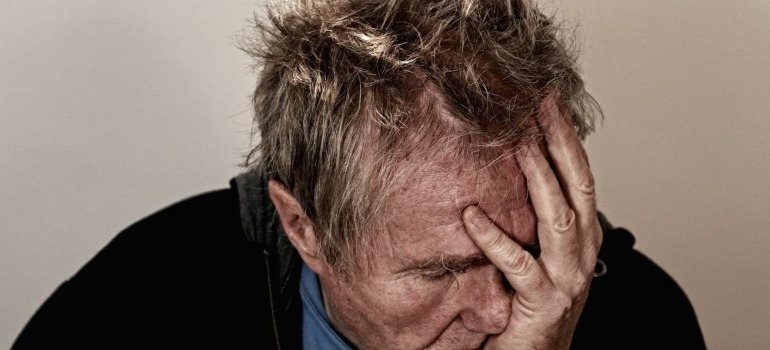Polyaddiction, the simultaneous dependence on multiple substances, is a unique issue. Moreover, when compared to single-substance addiction, it is much more complex. Unlike addiction to a single drug, poly addiction includes navigating the complex of all kinds of issues. It includes interactions between various substances, each with its effects, withdrawal symptoms, and potential for harm. Effective support and treatment require a comprehensive approach that acknowledges the multifaceted nature of poly addiction. Addressing poly addiction, and understanding the challenges of overcoming poly addiction, is crucial for developing targeted strategies that cater to the specific needs of individuals. Harmony Ridge Recovery Center offers specialized programs that tackle these complexities, helping people handle the demanding path to recovery.
Complexity of Multiple Substances and The Challenges of Overcoming Poly Addiction
The simultaneous use of multiple substances, known as poly addiction, presents rather dangerous challenges. Different substances have a detrimental effect on the central nervous system in distinct ways. For example, mixing depressants like alcohol with stimulants such as cocaine can mask the effects of one drug, potentially leading to an overdose or even a heart attack. This complexity complicates both diagnosis and treatment, as we need a deep understanding of the interactions between various drugs. In addition, each substance has its withdrawal symptoms, such as seizures from alcohol withdrawal or intense cravings from opioids. For poly addicts, the detox process must include a combination of these symptoms. Effective treatment for poly addiction, especially with a dual diagnosis, demands comprehensive strategies that address the multifaceted nature of substance dependence.

Increased Risk of Overdose and Health Complications As The Challenges of Overcoming Poly Addiction
The most dangerous thing that can happen with poly addiction is the heightened likelihood of overdose. Combining multiple substances can lead to unpredictable outcomes. For instance, mixing opioids with benzodiazepines can dangerously depress respiratory function. Also, the effects of one drug may mask or amplify the effects of another, leading to accidental fatalities. That is when we can benefit from using the holistic approach to tackle this issue. Comprehensive medical care and ongoing monitoring are essential as part of a holistic treatment approach. Addressing these risks is essential for preventing overdose and ensuring the safety of individuals undergoing treatment for poly addiction. Long-term poly addiction also results in chronic health issues, including serious damage to vital organs such as the liver, heart, and brain. Chronic alcohol use, for example, can lead to liver cirrhosis, while stimulant abuse may cause problems with your heart.
Psychological and Emotional Challenges
Individuals with poly addiction often face dual diagnoses. Conditions such as anxiety, depression, or bipolar disorder significantly complicate the whole treatment and recovery process. Ignoring co-occurring disorders can make a slow recovery and increase the risk of relapse. Hence, effective treatment for poly addiction must include strategies for managing mental health conditions alongside substance dependence. Emotional turbulence is another significant challenge. Additionally, we have feelings of guilt, shame, and depression that can also happen. The complex interactions of multiple substances can intensify these emotions, complicating recovery further. People may experience self-esteem issues and emotional instability. Therefore, addressing these challenges through emotional support and therapy is crucial. Incorporating cognitive-behavioral therapy (CBT) into treatment plans can be especially beneficial for helping people develop healthier coping mechanisms and manage their emotional struggles.
Social and Environmental Factors
Social environments, such as peer groups and party cultures, play a significant role in the impossibility of getting rid of poly addiction. Individuals may face peer pressure or social norms that encourage substance use. Thus, the pressure creates a difficult environment for breaking free from addiction. Party cultures and social circles that normalize drug use can make the vicious cycle of addiction even longer. Addressing these social factors is of key importance in treatment programs, especially those focused on rehab for young adults. Effective recovery must include strategies to help individuals navigate and alter their social environments. Also, cultivating healthier relationships and support systems is of great importance. By addressing the influence of social circles and peer pressure, treatment programs can better equip individuals to build a drug-free lifestyle.

Challenges in Treatment
During the detox process from multiple substances, it is important to have comprehensive medical supervision. Polyaddiction often involves handling withdrawal symptoms from various drugs simultaneously, complicating the detox process. Each substance may have different withdrawal effects, making it very important for medical professionals to create customized detox protocols. These protocols must account for the specific substances involved, their interactions, and the unique needs of the patient. Effective medical detox requires close monitoring to ensure safety and be alert due to potential complications. The complications can include severe withdrawal symptoms or adverse reactions. This complex process is crucial for preparing individuals for further treatment and recovery.
Individualized Treatment Plans for Poly Addiction Are the Key to The Challenges of Overcoming Poly Addiction
Effective treatment for poly addiction demands highly customized plans that address all substances involved. Each person’s treatment needs to be tailored to their unique situation. Moreover, every treatment needs to consider the specific drugs used and their effects. This personalized approach ensures that every aspect of the addiction is mentioned, facilitating a more thorough and effective recovery process. Also, the risk of relapse in poly addiction recovery is notably high due to the multiple triggers and stressors about substance use. Recovery programs must include robust strategies for relapse prevention and offer continuous support to help people stay committed to their recovery goals. Navigating relapse risk involves creating a comprehensive plan that addresses both the psychological and physical aspects of addiction.

Overcoming Psychological Dependency in Poly Addiction
Breaking psychological dependency on multiple substances is a great challenge. Especially difficult is when we used to abuse drugs to cope with emotional pain or stress. The psychological cycle of addiction often involves deep-seated patterns of behavior. Key aspects of overcoming psychological dependency include:
- Identifying and breaking cycles: Recognizing and breaking the entrenched patterns
- Developing healthy coping mechanisms: Learning and integrating healthier ways to deal with stress and emotional pain.
- Therapeutic support: Engaging in therapies such as cognitive-behavioral therapy (CBT) to address the hidden psychological issues contributing to addiction.
Effective treatment for drug addiction must focus on these areas to facilitate recovery and prevent relapse. Addressing the psychological aspects of addiction is essential to help people build a foundation for long-term sobriety and healthier living.
Effective Strategies for Overcoming Poly Addiction
Integrated treatment approaches are crucial for overcoming poly addiction. These types of approaches address both the physical and psychological aspects of substance dependence. These comprehensive programs should implement detoxification and substance abuse treatment. Key strategies include:
- Detoxification: A medically supervised process to safely manage withdrawal symptoms.
- Therapeutic support: Engaging in therapies that address both substance use and co-occurring mental health disorders.
- Holistic care: Providing a well-rounded treatment plan that integrates physical detox with psychological support and it may include mindfulness and yoga.
By tackling all elements of addiction simultaneously, integrated treatment approaches offer a holistic path to recovery. It ensures that individuals receive the necessary care and support to maintain long-term sobriety. Addressing both physical and psychological needs boosts the effectiveness of the recovery process and promotes overall well-being.

Developing New Coping Mechanisms for Poly Addiction Recovery
Learning and integrating new coping mechanisms is essential during recovering from poly addiction. Often, substance use becomes a maladaptive strategy for managing stress, anxiety, or other emotional challenges. To effectively replace this behavior, people must develop and practice healthy alternatives, such as mindfulness, regular exercise, or engaging in creative activities. These strategies help regulate emotions and reduce the risk of relapse. The challenge lies in consistently implementing these new habits into daily routines. Successful recovery depends on the ability to include these positive coping mechanisms in everyday life, meaning that if you want to keep developing them you need to make them a fundamental part of your approach to managing stress and maintaining sobriety. By establishing new patterns of behavior and thought, individuals can foster resilience and reduce the likelihood of returning to substance use.
The Possibility of Recovery
Overcoming poly addiction is undeniably challenging, but it is important to mention that recovery is possible. We often forget that recovery is possible because we are faced with stigma daily. However, with the right treatment, support, and determination, individuals can achieve sobriety and rebuild their lives. The journey to recovery may be extremely difficult, demanding perseverance and commitment, but success is achievable. An all-encompassing approach that includes medical treatment, psychological support, and the development of healthy coping mechanisms is crucial for long-term recovery. By focusing on healing, personal growth, and the support of a strong network, individuals facing poly addiction can regain control of their lives and move towards a healthier future.

The Role of Support Systems in Recovery
Support systems are an essential component of successful recovery from poly addiction. Family, friends, and peer groups provide emotional encouragement, accountability, and practical assistance throughout the recovery journey. The presence of a reliable support network can help people stop feeling isolated and cultivate a sense of belonging. For many, participating in support groups where they can share experiences and gain insights from others facing similar challenges is especially beneficial. Additionally, professional support from counselors and group sessions help address underlying issues and develop healthy coping strategies. A well-rounded support system not only aids in immediate recovery but also offers ongoing reinforcement to sustain long-term sobriety. Building and maintaining these connections is crucial for individuals seeking to overcome the challenges of poly addiction.
Relapse Risk and Recovery
The risk of relapse is especially high in poly addiction recovery. It is like that because of the complex dynamics of managing multiple substances. People recovering from poly addiction often encounter various triggers and stressors that can connect them to their past substance use. Precisely those triggers are making it challenging to maintain sobriety. The presence of multiple substances complicates the recovery process, as each substance may have its own set of triggers. Effective recovery programs must tackle these challenges by incorporating strategies specifically designed to manage relapse risk. This includes ongoing support, therapy, and relapse prevention techniques customized for the individual’s needs. By providing comprehensive care and continuous encouragement, recovery programs can help people stay committed to their recovery goals and reduce the probability of relapse. The journey to sobriety is difficult, but with the right support and resources, long-term recovery is achievable.

The Path Forward
Understanding the challenges of overcoming poly addiction is essential for supporting people on their recovery journey. This rather complex form of addiction involves managing the dangerous interactions of multiple substances. In addition, it also involves facing varied withdrawal symptoms and addressing the increased risk of overdose and chronic health issues. Also, the psychological and emotional obstacles, compounded by co-occurring mental health disorders and the influence of social and environmental factors, make recovery particularly challenging. Treatment must be comprehensive, individualized, and supported by strong, healthy networks. Despite these difficulties, with integrated approaches, the development of new coping mechanisms, and long-term planning, recovery is achievable. By reinforcing hope, we can inspire those struggling with poly addiction to sustain sobriety.



